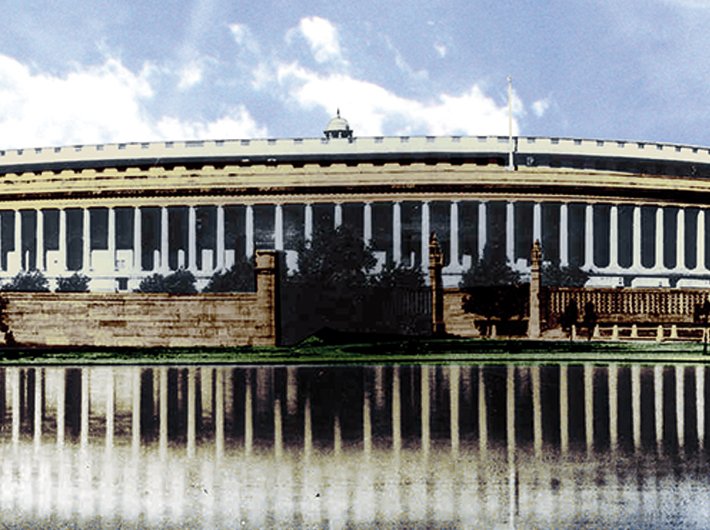The winter session of parliament this year is going to be from December 15 to January 5, which will result in fewer sittings and impact legislative productivity.
When parliament meets for a fewer days, it is bound to have an adverse impact on the work. The parliamentarians do get to spend more time in their constituencies, but that is little solace for not being able to pay considerable attention to larger national interests.
This year’s winter session is for 22 days, while last year’s winter session was for 31 days.The winter session begins a day after the two-phase Gujarat assembly election ends. Polling for the Gujarat assembly elections will be held on December 9 and December 14.
The Congress has repeatedly claimed over the past few days that the government delayed the winter session of parliament to avoid questions from the opposition which can hamper its prospects in the Gujarat polls.
"They do not want discussion in parliament so they are giving different excuses for delaying the winter session. If they convene parliament session and hold discussion, then they will be exposed. So they are trying to convene the session after the Gujarat assembly polls," said Congress leader Mallikarjun Kharge.
According to a study by the PRS Legislative Research, the Lok Sabha met for an average 127 days in the 1950s and the Rajya Sabha for 93 days but it has drastically gone down to 73 days for both Houses in 2011. This is despite the All-India Conference of presiding officers, chief ministers, minister of parliamentary affairs and leaders and whips of parties held in 2001 demanding that parliament should meet for a minimum of 110 days every year, reported Deccan Herald.
The study adds, it must be noted that Departmentally Related Standing Committees were instituted in 1993 and since then parliament refers many bills to these committees. This work happens outside parliament sittings.
The first Lok Sabha passed an average of 72 bills each year but this has decreased to 40 bills a year in the 15th Lok Sabha. The highest number of bills passed in a year was 118 in 1976 during the Emergency. The lowest number of bills was passed in 2004 when only 18 bills were passed in parliament.
Afroz Alam, associate professor and head, department of political science, Maulana Azad National Urdu University while writing on “Decline of Parliamentary Governance: Indian Scenario” said that we need to consider four trends when the parliamentary sittings are in question. First, there is a consistent decline in the number of days for which both houses of parliament sits every year and time for which deliberations are made for deciding upon question of national relevance has considerably reduced, incomparably, in recent times. As per the recent analysis of PRS Legislative Research (PRS), against the average 127 days of sitting in the 1950s, Lok Sabha met only 74 times in 2012. The story of Rajya Sabha is also not different. Rajya Sabha on an average meets 93 days a year in 1950s. But it has reduced to merely 74 days in 2012.] Worst of all was the winter session of Parliament in 2010. In the whole session, the Rajya Sabha met just for two hours and 44 minutes, the Lok Sabha for seven and half hour. The number of Lok Sabha sessions that took place during the winter session was 23 which are way less than last few years.
In fact, last year’s winter session was quite a busy one. It began on November 16 and concluded on December 16. The session provided 21 sittings spread over a period of 31 days.
During the session, 10 Bills (all in Lok Sabha ) were introduced. Lok Sabha passed 4 Bills and the Rajya Sabha passed 1 Bill during the session. The Taxation Laws (Second Amendment) Bill, 2016 was deemed to have been passed by both the Houses of Parliament. The Rights of Persons with Disabilities Bill, 2016 was also passed.
